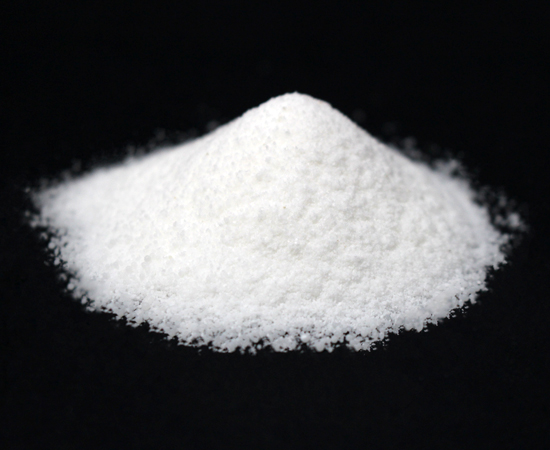
Rumen protected and plain niacin products (70%) for ruminants
The physiological importance of niacin in animal organisms has been a well-known fact for a long time. Niacin is a constituent of two coenzymes, the nicotinamide-adenine-dinucleotide (NAD) and the nicotinamide-adenine-dinucleotide-phosphate (NADP). These coenzymes – connected to enzyme-proteins – transport the electrons in the synthesis and degradation of proteins, fats and carbo-hydrates, therefore they play an important role in the metabolism of the mentioned nutrients. There are just a few data mentioned in literature about the niacin-content of the feed to be utilized, thus it is difficult to determine exactly the niacin-supply of the ruminants.
Therefore, in practice the feed-portion of the animals is supplemented with niacin, especially in the periods of intensive metabolism (e.g.: in case of dairy cows, the first phase of lactation, weaning, starting the feed fattening, etc.). During the use of niacin, the safety of production increases, the possibility of energy-retention problems reduces. The niacin-content of the used forage significantly influences the niacin-synthesis of rumen-microbes, thus it is advised to dose a certain part of niacin supplemental in a rumen-protected form, which cannot or just to a limited extent can degrade bythe microbes.
The rumen-protected niacin products of Adexgo Kft. are decisively utilized in the small intestine, which means a direct niacin-source in the crucial period of production. According to the experiments the rumen-protected niacin has a positive effect on N-metabolism as well.
The proportion utilized in the rumen has a positive effect on the operation of rumen-microbes. In case of plain niacin supplement, the propionic acid-concentration of rumen fluid increases, which – as a glucogenetic material – improves the glucose supply of ruminants, and it improves the effectiveness of lactose synthesis. The increasing propionic acid proportion improves the animals’ energy-balance; it also decreases the methane production in the rumen. Furthermore the niacin-supplement reduces the lactic acid concentration of the rumen fluid and it increases the pH-value of the rumen fluid.
According to the literature, niacin feeding – which is utilized both in the rumen and in the small intestine – has positive effect on rumen fermentation, on prevention of metabolic diseases (e.g.: acidosis, ketosis) and on N-metabolism and these positive effects occur simultaneously.
THE ROLE OF NIACIN IN PREVENTING AND IN TREATING KETOSIS
Ketosis is a metabolic disease, in which the quantity of ketone-bodies (acetoacetate, β-hydroxybutyrate, acetone) and the free fatty acids increase in the blood-plasma, while the glucose-concentration decreases. According to some surveys more than 50% of the high yielding dairy cows suffer from sub-clinical ketosis. In case of ketosis the appetite, the feed-intake, the live weight and the milk production of the animals decrease.
Around the period of calving, in case of feeding 6-12 g niacin daily and per animal, the glucose concentration of the blood-plasma increases, the proportion of ketone-bodies and free fatty acids decreases while the milk production also increases. The favourable effects can be traced back to the antilipolytic effect of niacin on adipose tissues (for example: it intensifies glucose transport to the liver cells through diffusion; it reduces the c-AMP-content of adipose and other tissues; it lessens the butyrin concentration in the rumen, etc.).
ADVANTAGES OF FEEDING PLAIN AND RUMEN-PROTECTED NIACIN
- feed-intake of ruminants improves
- the quantity of ketone-materials in blood and the concentration of free fatty acids decrease
- milk production increases
- fat- and protein content of milk increases
- as a result of the niacin utilized in the rumen the activity of rumen-microbes improves and the microbial-protein synthesis increases
The products can be used effectively in the feeding of dairy sheep and goat.
